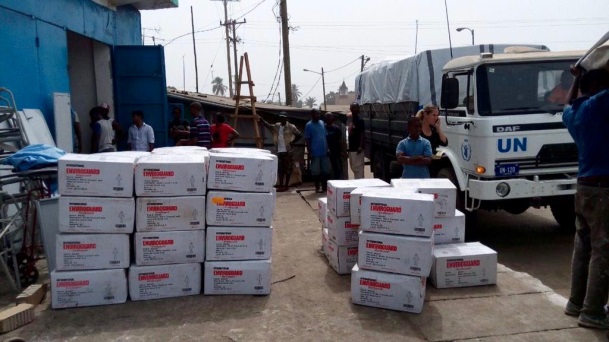Responding to Ebola | Overview
Responding to Ebola
 Challenge
Challenge
In 2014, an Ebola outbreak in Liberia tragically claimed thousands of lives and impacted many of the nation’s frontline health care workers. The outbreak severely strained Liberia’s already weakened health care system, which was still recovering from war.
Where We Started
Working with the Academic Consortium Combatting Ebola in Liberia and Liberia College of Physicians and Surgeons, Michelle Niescierenko, MD, MPH, Director of Boston Children’s Global Health Program, implemented Emergency Infection Prevention and Control training, mentorship and quality improvement to stop the spread of Ebola. This approach included acquiring personal protective equipment, disseminating these supplies to health care workers in Liberian governmental hospitals, and providing training on their proper use and implementation of newly acquired infection control knowledge in hospitals. This approach used teams of Liberian physicians and nurses paired with midwives, water/sanitation technicians and psychosocial support providers to educate health care workers across the country.
Our Impact
The “Keep Safe, Keep Serving” training was delivered to over 2,800 health facility staff at Liberia’s 21 government hospitals. The teams also provided a three-month supply of personal protective equipment and conducted water and sanitation renovation projects, completing more than $221,000 in infrastructure improvements. As a result of these interventions, Liberia’s hospital safety scores rose from unacceptable to acceptable. This training supported the safe operation of Liberian hospitals during the Ebola outbreak and beyond.
You Can Make a Difference
With your support, we can enable our team to expand our real-time response to humanitarian and health crises around the world with proven and transferable strategies.
< Building a Pediatric Workforce
